Traditional lead-acid UPS units served me well. But I kept hearing about lithium-ion benefits – longer life, smaller size. I wondered if the upgrade was truly worth it.
Yes, moving to a lithium-ion UPS offers significant advantages like much longer battery lifespan, faster recharge times, lighter weight, and a smaller footprint, making it a compelling upgrade despite a higher initial cost.
My experience has shown that lithium-ion UPS systems represent a major step forward in uninterruptible power supply technology. They address many of the pain points associated with older lead-acid models, particularly in terms of longevity and management. The initial investment is higher, but the total cost of ownership often proves to be lower over time.
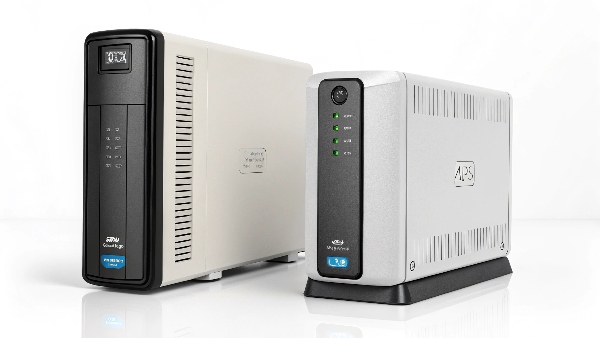
As someone who has been in the UPS manufacturing business with DAOPULSE for 10 years, I've seen technologies evolve. The shift towards lithium-ion batteries is undeniable. My insight is that more and more uninterruptible power supplies are equipped with lithium batteries. This isn't just a fleeting trend; it's a significant advancement. I decided to explore this for my own setups and for our clients, and the journey has been quite revealing. Let's delve into what I've learned.
Is a lithium-ion battery good for UPS?
You're using lead-acid UPS units. You hear about lithium-ion but wonder if its benefits translate well to the demands of a UPS, or if it's just hype.
Absolutely, lithium-ion batteries are exceptionally good for UPS applications. They offer longer operational life, reduced maintenance, better power density, and faster recharging compared to traditional lead-acid batteries.
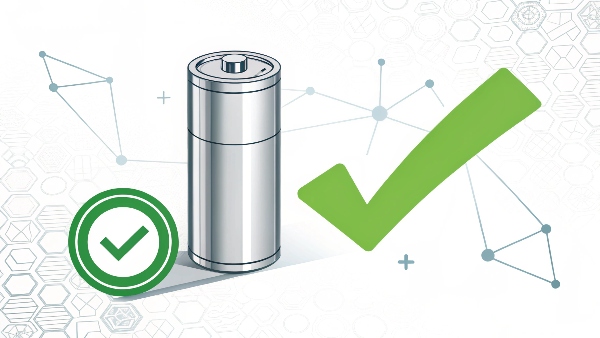
From my professional standpoint and personal experience, lithium-ion technology brings a host of compelling advantages to UPS systems. Traditional VRLA (Valve Regulated Lead-Acid) batteries have been the workhorse for decades, but lithium-ion chemistries, like Lithium Iron Phosphate (LiFePO4) often used in UPS, offer a superior performance profile. The most significant benefit I've observed is the lifespan. A typical lead-acid battery in a UPS might last 3-5 years, depending on usage and ambient temperature. Lithium-ion batteries, in contrast, can last 8-10 years, or even longer, often outliving the UPS electronics themselves. This drastically reduces the frequency of battery replacements, which means lower maintenance costs and less downtime. They also handle a much higher number of charge-discharge cycles. Furthermore, lithium-ion batteries are significantly lighter and more compact for the same energy capacity, allowing for smaller, lighter UPS designs, which is a big plus for rack-mounted solutions or space-constrained environments. They also tend to have better temperature tolerance and recharge much faster than their lead-acid counterparts.
| Feature | Lead-Acid (VRLA) UPS Battery | Lithium-Ion (e.g., LiFePO4) UPS Battery |
|---|---|---|
| Typical Lifespan | 3-5 years | 8-10+ years |
| Weight | Heavier | Lighter (up to 60% less) |
| Size | Bulkier | More Compact (up to 40% smaller) |
| Cycle Life | Lower (200-500 cycles) | Higher (2000-5000+ cycles) |
| Recharge Time | Slower (6-12+ hours) | Faster (2-4 hours) |
| Temp. Tolerance | More Sensitive | Wider Operating Range |
| Maintenance | More Frequent Replacement | Less Frequent Replacement |
This table clearly illustrates the practical advantages I've consistently seen.
What is the largest problem with lithium-ion batteries?
You're impressed by lithium-ion's benefits. However, you've also heard about potential issues and wonder what the biggest drawback or concern might be when considering them.
The single largest problem with lithium-ion batteries, particularly in the context of UPS systems, remains their higher upfront acquisition cost compared to traditional lead-acid batteries.
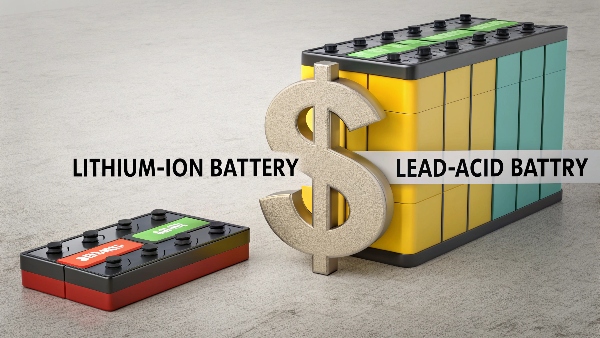
While the advantages are compelling, the most significant hurdle for widespread adoption of lithium-ion UPS systems has traditionally been the initial purchase price. When I first started evaluating lithium options for our clients at DAOPULSE, the cost difference was substantial. A lithium-ion UPS could be two to three times more expensive than a comparable lead-acid unit. This upfront investment can be a deterrent for budget-conscious buyers, especially for smaller applications where the long-term benefits might not be immediately prioritized over initial capital outlay.
Beyond cost, another concern often raised is safety, largely due to historical incidents with consumer electronics. However, it's crucial to differentiate. UPS systems typically use more stable lithium chemistries like Lithium Iron Phosphate (LiFePO4), which have a much better thermal runaway profile than chemistries used in some smaller gadgets. Moreover, all reputable lithium-ion UPS units incorporate sophisticated Battery Management Systems (BMS). This BMS is critical; it monitors cell voltage, temperature, current, and state of charge, providing protection against overcharging, over-discharging, over-current, and overheating. This significantly mitigates safety risks. So, while cost is the primary "problem" or barrier, safety concerns are largely addressed by mature technology and proper engineering in modern UPS designs. The industry has made huge strides here.
Can I replace my UPS battery with a lithium battery?
You have an existing UPS with a lead-acid battery. You're wondering if you can simply buy a lithium-ion battery pack and swap it in to get those benefits.
Generally, no, you cannot directly replace a lead-acid battery in a standard UPS with a lithium-ion battery. They have different charging voltage requirements and need a dedicated Battery Management System (BMS).
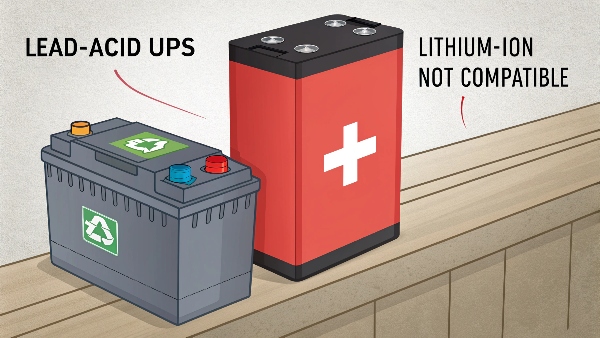
This is a question I get asked frequently by clients looking to upgrade. Unfortunately, it's rarely a straightforward swap. The internal charging circuitry of a UPS designed for lead-acid batteries is tailored to the specific voltage profiles and charging stages (bulk, absorption, float) that lead-acid chemistry requires. Lithium-ion batteries, on the other hand, have different nominal voltages per cell and require a different charging algorithm, typically Constant Current/Constant Voltage (CC/CV), and absolutely must not be subjected to the "float charge" that lead-acid batteries often receive.
Attempting to charge a lithium-ion battery with a lead-acid charger can lead to several problems:
- Undercharging or Overcharging: The lead-acid charger won't correctly manage the lithium battery's state of charge, potentially damaging the lithium cells or significantly reducing their lifespan. Overcharging is a serious safety risk.
- Lack of BMS Integration: Lithium-ion batteries critically depend on a Battery Management System (BMS) for safety and longevity. This BMS controls charging, discharging, balancing between cells, and protects against over-temperature, over-current, etc. A standard lead-acid UPS doesn't have the interface or logic to communicate with or utilize an external Li-ion BMS properly.
- Voltage Mismatch: Even if you found a Li-ion pack with a seemingly similar overall voltage, the per-cell voltages and behavior under load are different.
There are some specialized companies that might offer retrofit kits for specific UPS models, which would include both the lithium battery pack and a new compatible charging/management board, but these are not common for consumer-grade UPS units. For most users, moving to lithium-ion means purchasing a new UPS designed from the ground up for lithium-ion battery technology. My insight is that more and more uninterruptible power supplies are equipped with lithium batteries precisely because they are designed as integrated systems.
What are the negatives of a lithium battery (in UPS context)?
You understand the benefits of lithium-ion for UPS. Now, you want a clear picture of the specific downsides or negatives one might encounter when choosing this technology.
The primary negatives of a lithium battery in a UPS context are its higher initial purchase price and the complexity (and necessity) of its Battery Management System (BMS).
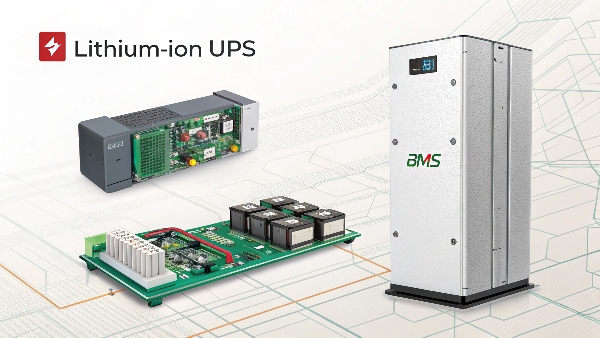
While I've become a strong advocate for lithium-ion UPS systems due to their performance, it's important to acknowledge the trade-offs. The most significant negative, as mentioned before, is the higher upfront cost1. This can be a barrier, especially when comparing raw initial prices without factoring in the total cost of ownership (TCO). Over a 10-year period, a lithium UPS might be cheaper due to fewer battery replacements, but that initial hit to the budget is real.
Secondly, the necessity and complexity of the Battery Management System (BMS)2 is a factor. While the BMS is crucial for safety and performance, it adds to the system's cost and complexity. A well-designed BMS is sophisticated, constantly monitoring individual cells and protecting against a range of fault conditions. If a BMS were to fail or be poorly designed (which is rare in reputable brands), it could compromise the battery. This isn't a "negative" in the sense of a daily operational problem, but it represents an added layer of technology that must be robust.
Another point, though less of a direct "negative" of the battery itself and more an industry challenge, is end-of-life recycling. While lithium-ion batteries are recyclable, the infrastructure and processes are still developing and can be more complex or costly than for lead-acid batteries, which have a very well-established recycling stream. This is improving, but it's a consideration for environmentally conscious organizations.
Finally, while much safer than early lithium chemistries, there's still a lingering public perception about safety. However, with LiFePO4 chemistry common in UPS and a robust BMS, the actual risk in a well-made UPS is extremely low. The key is to buy from reputable manufacturers like us at DAOPULSE who prioritize quality and safety in their designs.
Conclusion
My move to and experience with lithium-ion UPS systems has been overwhelmingly positive. The longer life, smaller size, and reduced maintenance clearly outweigh the higher initial cost for many applications. This technology is indeed the future of reliable backup power.

